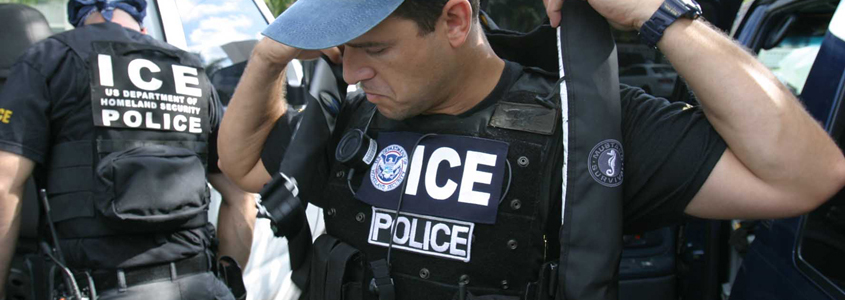California to Employers: Cooperation with Federal Immigration Agents Will Cost You

On October 5, 2017, Governor Brown signed the “Immigrant Worker Protection Act” (IWPA) as part of making California a sanctuary state. This law imposes new duties on public and private employers to protect their employees’ privacy when faced with federal immigration raids and inspections. In effect, a California employer may now face civil penalties from $2,000 to $10,000 for multiple violations for what the employer or manager may view as her duty to cooperate with federal agents knocking at the factory door.
What the IWPA Does
Significantly, the IWPA prevents an employer or her agent from consenting to a search of the workplace by federal immigration agents without a valid judicial warrant. The employer may allow the federal agents only into “public areas” of the workplace, and then only to verify the validity of the search warrant. Thus, under this law, the employer becomes the primary protector of the privacy of employees in the face of a warrantless federal immigration raid. Failure to comply may subject the employer to civil penalties of up to $10,000, regardless of whether the federal agents find undocumented workers.
The IWPA also prevents an employer from consenting to a warrantless inspection of her employees’ I-9 citizen verification forms. An employer must now post notice to the employee and his agent/attorney, in the employee’s language, 72 hours before federal agents review his I-9 form. The notice must include the employee’s rights and, if asked, the employer must provide the inspection request. Within 72 hours after the inspection, the employer must inform the employee of the inspection results, and inform the employee of his rights vis-à-vis correcting any deficiencies and his right to legal representation.
What’s Not So Clear for Employers
Significant gray areas will be faced by employers in complying with the IWPA. For instance, what constitutes “public areas” of a workplace may be highly ambiguous. It remains to be seen whether California will allow an “in plain sight” exception for federal agents legitimately at the workplace, or whether the employer must prevent a federal agent from accessing non-public areas if the agent begins a chase of a suspected undocumented worker. The notices required before and after I-9 inspections are likewise fraught with pitfalls for the employer. The exact content and parameters of these notices have not been fleshed out, and it is open to interpretation what details (and in what language) the employer must give the worker.
Employers’ Duty to Protect
It is clear that the IWPA puts responsibility squarely on a California employer to vigilantly protect her employees from federal immigration agents’ prying eyes in the absence of a warrant. Employers must inform themselves – and their managers – about the serious potential civil penalties, ranging from $2,000 for the first infraction to $10,000 for repeated violations, for “cooperating” with federal immigration agents.
